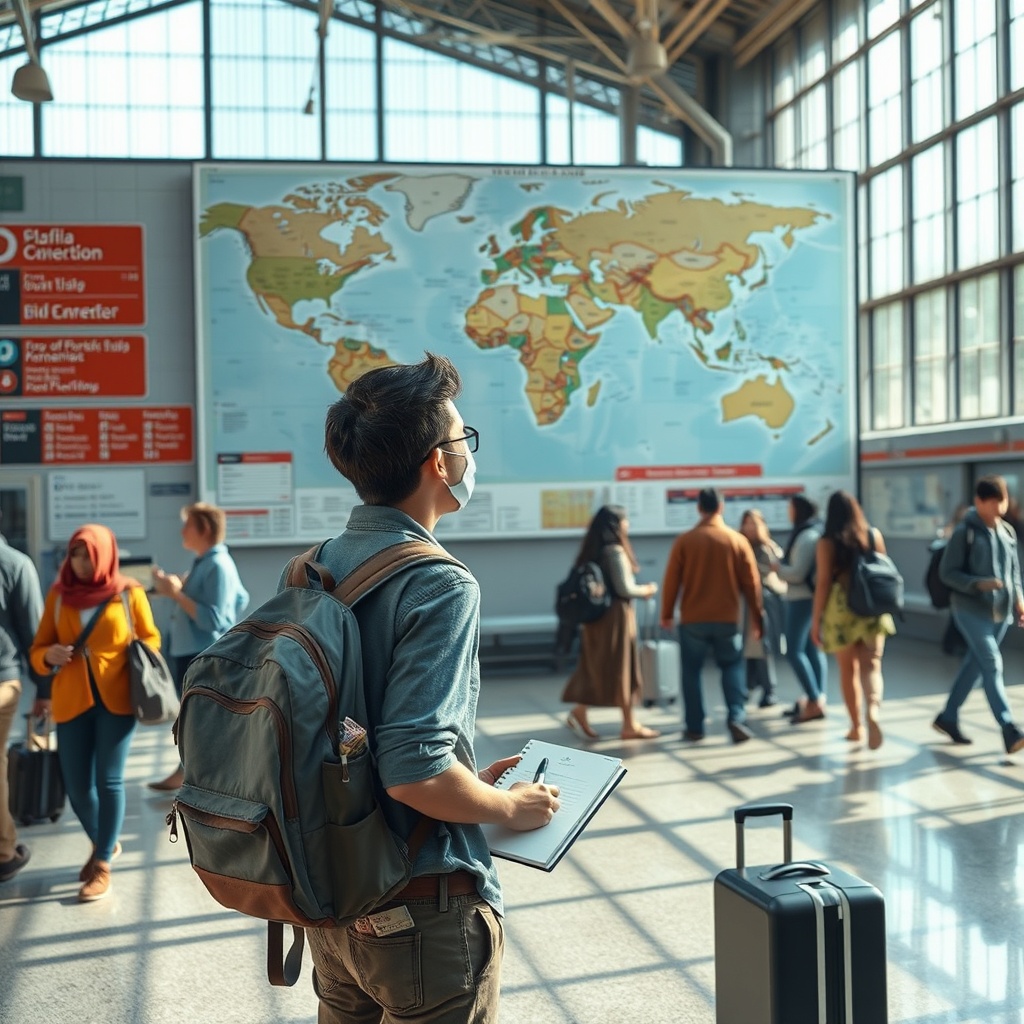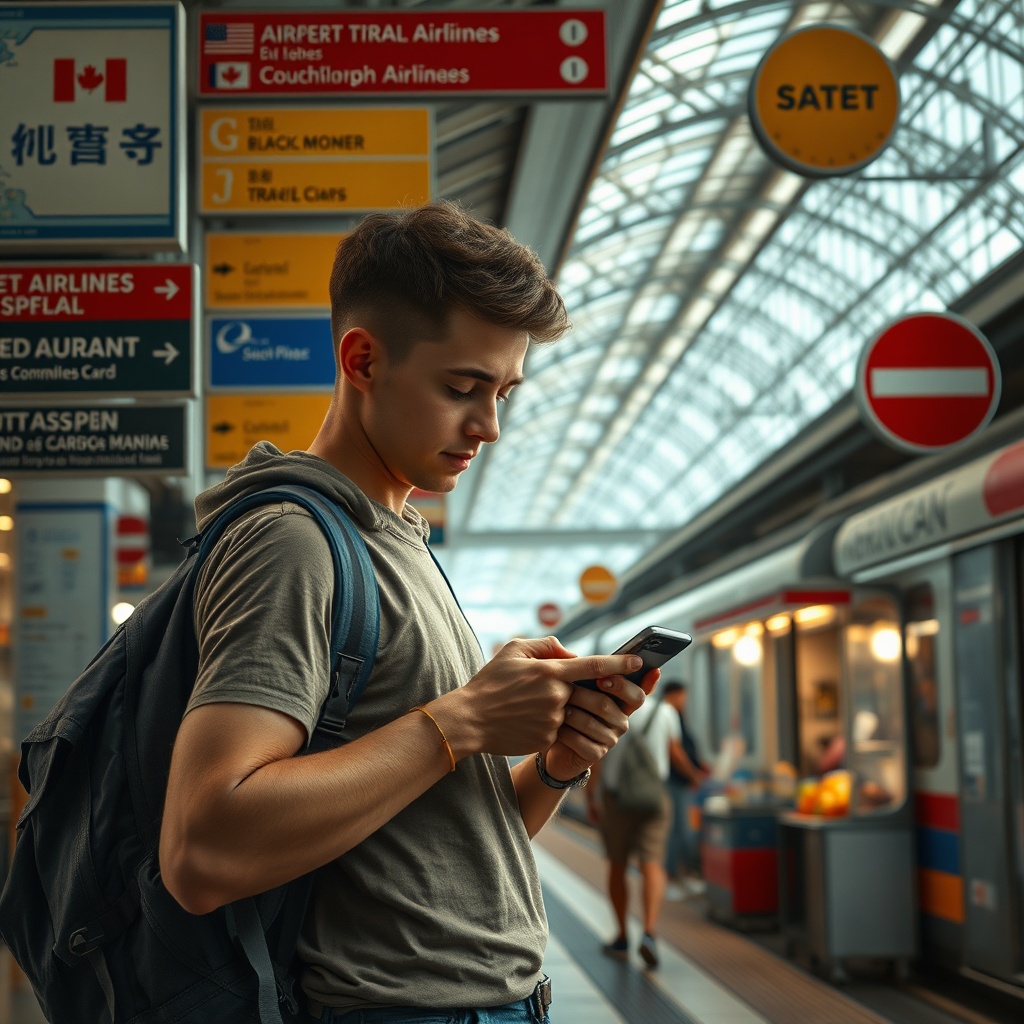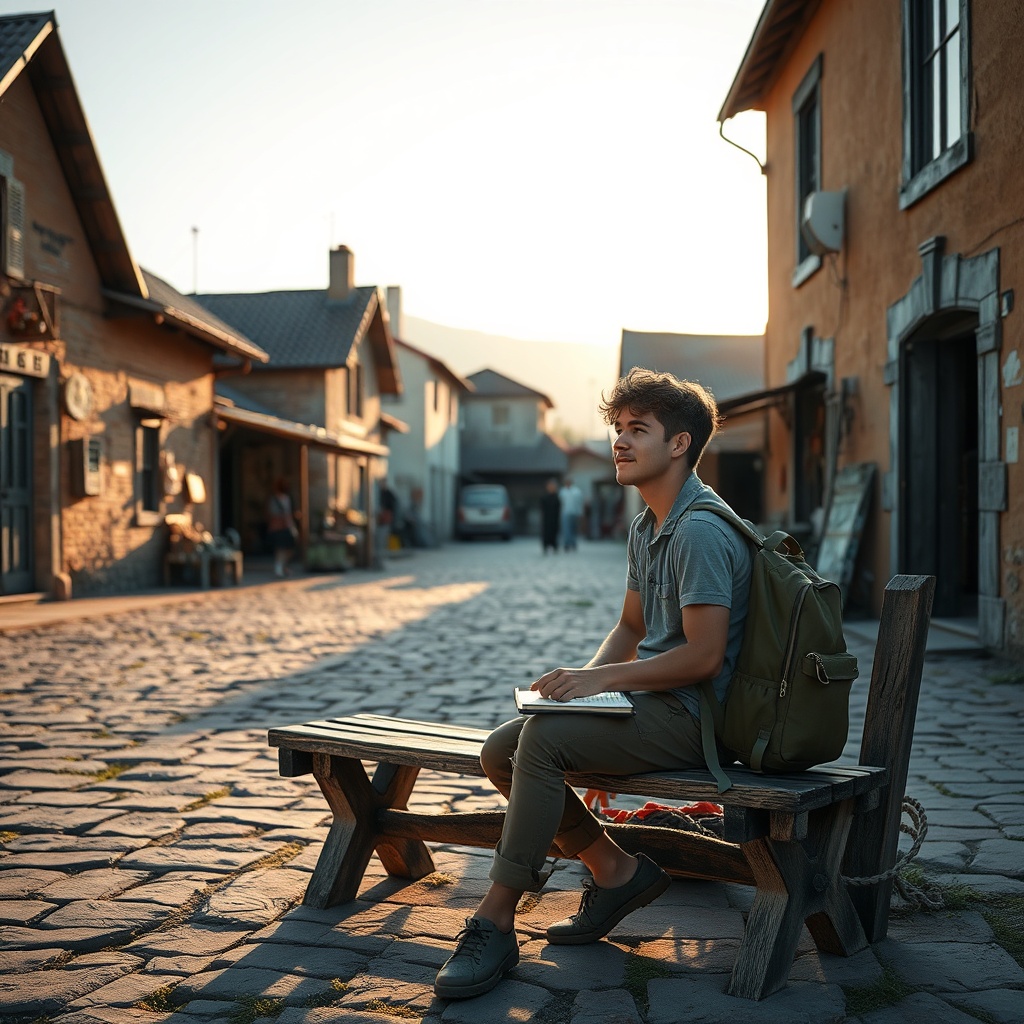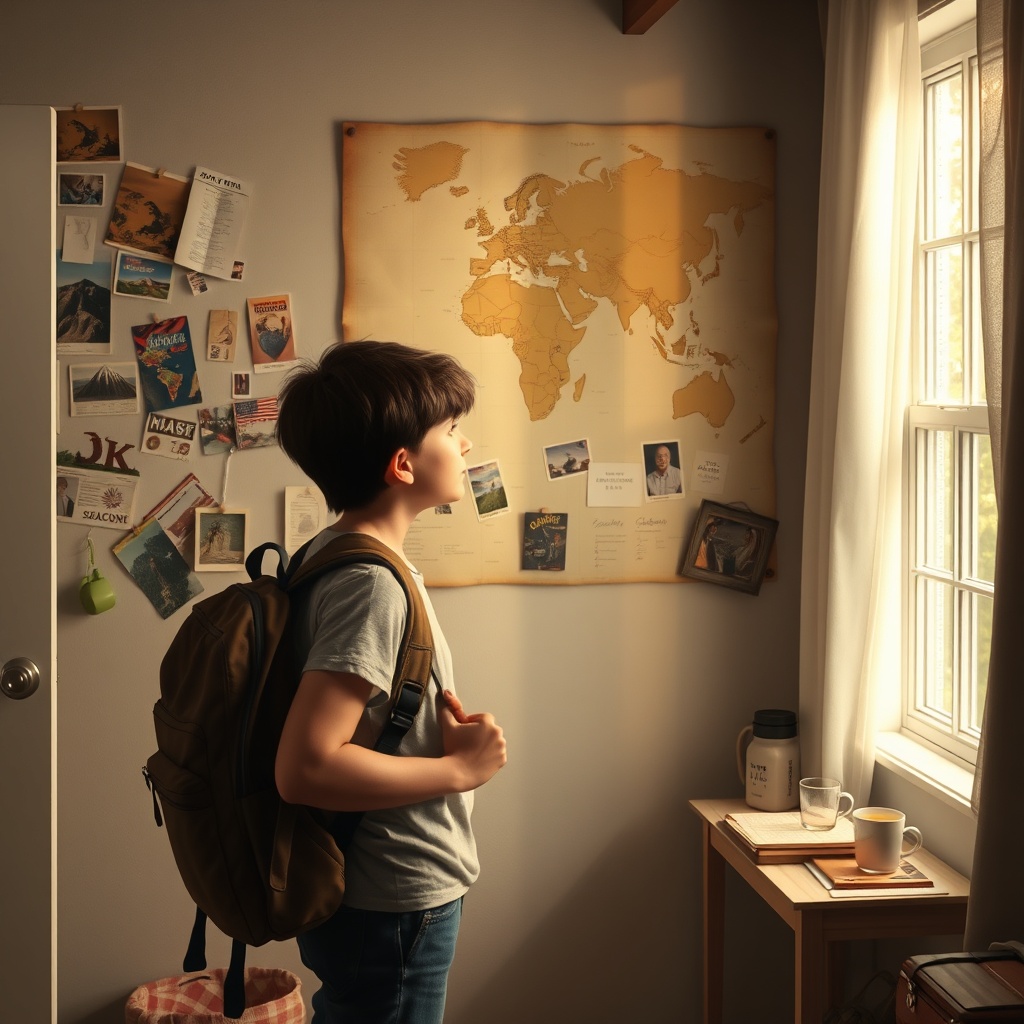Low-budget round-the-world challenge: Why it was possible with 1 million won per month
Have you ever wondered if it's truly possible to travel around the globe on a shoestring budget—specifically, just 1 million won (about $750 USD) per month? Sounds impossible, right? That was exactly what made me set this very challenge for myself. In the last week, I wrapped up an astonishing journey that redefined my beliefs about travel, money, and freedom. This story is not just for nomads or seasoned backpackers, but for anyone who’s ever dreamed of adventure—and hesitated due to budget restraints. If you've ever scrolled through dreamy world travel photos thinking, 'Not possible for someone like me,' keep reading! I’m about to show you the step-by-step, obstacle-filled—but incredibly rewarding—route that made it more than possible. From making strategic sacrifices and leveraging local hacks, to experiencing true magic in unexpected places and ultimately coming home changed, my journey follows the classic storytelling arc. Join me as I reveal the myths, battles, epiphanies, and triumphs of a low-budget global odyssey, and get inspired to map out your own.

What makes someone decide to travel the world on a shoestring budget? For me, the call to adventure came from a deep longing for freedom, discovery, and a desire to test my limits. I wanted to prove that travel is not just for the wealthy, but for anyone with enough curiosity and determination.
Many people believe that a round-the-world trip requires a massive bank account. This myth keeps countless dreamers stuck in their routines, waiting for the "right time" or a lottery win. But what if you could see the world with just 1 million won (about $750) a month? The idea sounded impossible, yet irresistibly exciting.
Why did I choose this challenge? First, I wanted to break free from the consumerist trap—realizing that experiences, not possessions, create lasting happiness. Second, I was inspired by stories of budget travelers who navigated continents with minimal resources, relying on creativity, resourcefulness, and human kindness. Third, I craved personal growth: nothing tests your resilience and adaptability like living on a tight budget in unfamiliar lands.
Key Benefits of a Low-Budget Adventure:
- Financial Freedom: Traveling cheaply means you don’t have to save for years. You can start sooner and travel longer.
- Authentic Experiences: Budget travel forces you to connect with locals, use public transport, and eat where residents eat. This leads to deeper cultural immersion.
- Minimalism: You learn to live with less, appreciate what you have, and let go of unnecessary baggage—both physical and mental.
- Personal Growth: Every challenge, from language barriers to finding a cheap bed, becomes a lesson in problem-solving and self-reliance.
Attempting a low-budget round-the-world trip is not just about saving money. It’s about redefining what’s possible, embracing uncertainty, and learning that the world is more accessible than we think. It’s about answering the call to adventure—no matter your financial situation.
| Myth | Reality |
|---|---|
| Travel is expensive | With planning, it can be affordable |
| You need luxury to enjoy travel | Simple moments bring the most joy |
| Budget travel is unsafe | Awareness and preparation keep you safe |
So, why attempt a low-budget round-the-world trip? Because the world is waiting, and adventure doesn’t have to cost a fortune. If you’ve ever dreamed of exploring distant lands, let this be your sign: it’s possible, and it’s worth it.

Embarking on a round-the-world adventure with just 1 million won (about $750) per month sounds like an impossible dream. But let me take you through my journey, where resourcefulness, flexibility, and a bit of rule-bending turned the improbable into reality.
Act 1: The Call to Adventure
It all started with a simple question: Can I see the world on a shoestring budget? I set a challenge for myself—travel the globe for a year, never exceeding my monthly budget. The goal was not just to visit places, but to prove that travel is accessible, even with limited funds.
Act 2: Crossing the Threshold
With a backpack, a one-way ticket, and a heart full of hope, I left home. The first step was to hack the biggest expense: transportation. I relied on budget airlines, overnight buses, and, when possible, hitchhiking. Flexibility was key—choosing destinations based on the cheapest routes, not fixed plans.
Act 3: Trials and Tribulations
- Accommodation Hacks: I used platforms like Couchsurfing, stayed in hostels, and volunteered at guesthouses in exchange for a bed. Sometimes, I even camped or slept at airports to save money.
- Food on a Budget: Local markets became my best friends. I cooked my own meals, tried street food, and occasionally fasted to stretch my funds.
- Cheating the System: I signed up for travel credit cards with welcome bonuses, used cashback apps, and hunted for error fares online. Sometimes, I took advantage of free city tours or museums on special days.
Act 4: Meeting the Mentor
Along the way, I met seasoned travelers who shared invaluable tips: use night trains to save on accommodation, travel slowly to reduce costs, and always keep an eye out for local deals. Their wisdom helped me adapt and thrive.
Act 5: The Abyss—Facing Obstacles
Of course, there were tough moments. I missed buses, got scammed, and sometimes ran dangerously low on cash. Language barriers and visa restrictions forced me to get creative. But every obstacle taught me resilience and problem-solving.
Act 6: Transformation
As the months passed, I became a master of frugality. I learned to barter, negotiate, and make friends everywhere. My perspective on money and happiness changed—experiences mattered more than comfort.
Act 7: The Return
Returning home, I realized the true value of my journey. Not only had I circled the globe on a tiny budget, but I had also gained confidence, resourcefulness, and a global network of friends.
Act 8: Sharing the Elixir
Now, I share my story to inspire others. Travel is not about luxury—it’s about curiosity, adaptability, and courage. With the right hacks and mindset, anyone can embark on their own adventure, regardless of budget.
| Hack | Obstacle | Solution |
|---|---|---|
| Budget Flights & Error Fares | Unexpected cancellations | Flexible itinerary, travel insurance |
| Couchsurfing & Volunteering | Unsafe hosts | Check reviews, have backup options |
| Street Food & Cooking | Food poisoning | Observe locals, carry medicine |
| Travel Credit Cards | Foreign transaction fees | Use no-fee cards, withdraw in bulk |
Whether you’re a student, a digital nomad, or simply curious, remember: the world is more accessible than you think. Embrace the journey, accept the challenges, and you’ll discover that adventure is not a matter of money, but of mindset.
Keywords: low-budget travel, travel hacks, round-the-world, budget adventure, travel obstacles

When I first set out on my low-budget round-the-world challenge, I had a list of the world’s most famous landmarks: the Eiffel Tower, Machu Picchu, the Great Wall of China. Like most travelers, I believed these must-see destinations were the true essence of global adventure.
But as the months passed and my budget forced me to slow down, I experienced a revelation that would change my journey—and my life—forever.
My journey began with excitement and a bit of anxiety. Could I really travel the world on just 1 million won a month? Every penny counted, so I quickly learned to make choices that would stretch my budget.
Instead of racing from one tourist hotspot to another, I found myself wandering into local neighborhoods, eating street food, and taking public buses. I started to realize that the meaningful places weren’t always the ones on postcards.
At first, I felt guilty for skipping the big attractions. Was I missing out? But the more I explored hidden corners, the more I discovered the true heart of each country. A quiet tea house in a Korean alley, a sunrise over a sleepy Bolivian village, a market where no one spoke English—these moments brought a sense of connection and wonder that no guidebook could promise.
Along the way, I met other travelers and locals who shared my passion for authenticity. They taught me that meaningful travel isn’t about ticking boxes, but about immersing yourself in the rhythm of daily life. One mentor, a retired teacher in Vietnam, invited me to his home for dinner. We talked for hours about family, dreams, and the beauty of simple living. That night, I realized I was richer in experience than I’d ever been before.
As I let go of the pressure to see everything, I began to notice small wonders: the kindness of strangers, the laughter of children, the scent of fresh bread at dawn. These details, often overlooked in the rush to the next destination, became the highlights of my journey.
Traveling on a tight budget wasn’t always easy. There were days of discomfort, language barriers, and unexpected setbacks. But these challenges forced me to adapt, to be resourceful, and to open my heart to the world. I learned that the most meaningful places are often the ones that challenge us, that make us grow.
- Stay longer in fewer places. This deepens your understanding and saves money.
- Seek out local experiences: community events, family-run guesthouses, traditional meals.
- Embrace slow travel. Walk, bike, or take local transport whenever possible.
- Let go of FOMO (fear of missing out). Trust that your unique journey is valuable.
By focusing on meaningful places over must-sees, I not only stretched my budget but also enriched my soul. I formed genuine friendships, learned new skills, and discovered a sense of belonging wherever I went. The world became less about destinations and more about connections.
When I finally returned home, I realized that the most valuable souvenirs were the stories and insights I’d gathered. I now encourage others to look beyond the obvious and seek out the places that speak to their hearts.
If you’re planning your own low-budget adventure, remember: The world’s true treasures are often hidden in plain sight. Choose meaning over must-sees, and you’ll find that even the smallest moments can change your life.
| Must-Sees | Meaningful Places | Benefits |
|---|---|---|
| Famous landmarks | Local neighborhoods | Deeper cultural understanding |
| Tourist hotspots | Hidden gems | Personal growth |
| Guidebook highlights | Everyday life experiences | Authentic connections |

Coming home after a year of traveling the world on a shoestring budget—just 1 million won a month—was a strange, beautiful, and slightly surreal experience.
At first, I worried that I would feel behind, or somehow less than my peers who had spent the year building careers or savings. But what I found was something far more valuable: a deep sense of freedom and a new understanding of enough-ness.
During my journey, I met countless people who lived with so much less than I ever had, yet radiated contentment and generosity. It made me question the constant pursuit of 'more'—more money, more possessions, more status. I realized that happiness is not about accumulation, but about appreciation and presence.
Living on a tight budget forced me to make conscious choices every day. What do I really need? What brings me joy? This practice of intentional living gave me a sense of control and freedom I had never felt before. I learned that simplicity is not a sacrifice, but a path to liberation from unnecessary stress and comparison.
When you discover what is truly enough for you, you become less susceptible to advertising, peer pressure, and societal expectations. This is a kind of superpower in our consumer-driven world. It allows you to focus on what matters: relationships, experiences, and personal growth.
- Track your spending for a month. You’ll be surprised at how little you actually need to feel fulfilled.
- Practice gratitude daily. It shifts your focus from what’s missing to what’s already abundant.
- Invest in experiences over things. Memories and skills outlast possessions.
- Set boundaries with social media and advertising. Protect your sense of enough-ness.
| Lesson | Benefit | How to Apply |
|---|---|---|
| Freedom from comparison | More peace, less anxiety | Limit social media, focus on your journey |
| Living simply | Financial stability, less clutter | Declutter monthly, buy only what you need |
| Appreciating enough | Increased happiness, resilience | Keep a gratitude journal, reflect weekly |
My low-budget round-the-world challenge was never just about saving money. It was about reclaiming my freedom—from expectations, from materialism, and from fear.
Now, back home, I carry these lessons with me. I know that I am enough, and that life is rich when you live it on your own terms. And that, perhaps, is the greatest journey of all.
